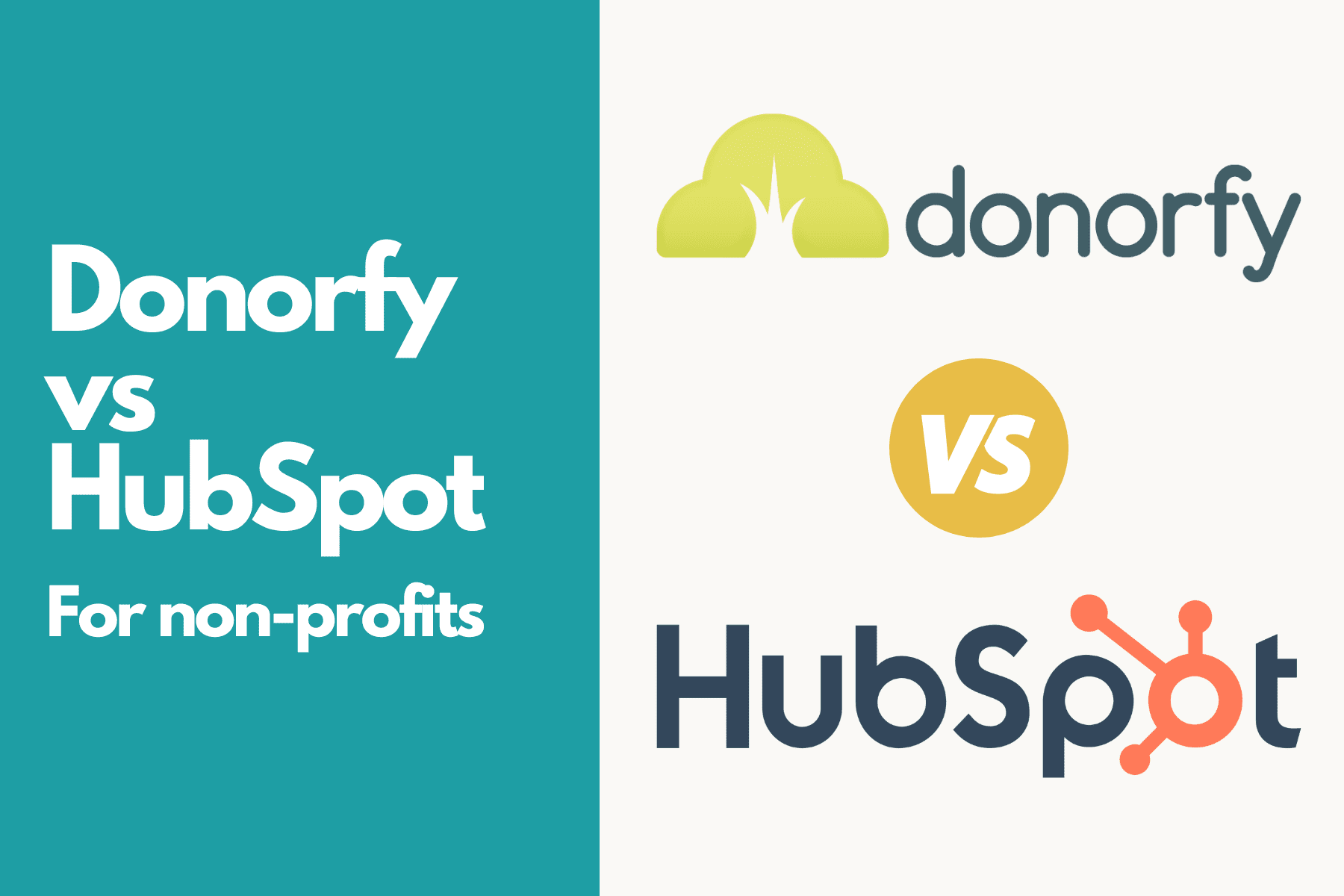Donorfy CRM is very popular for non-profits, it comes straight out of the box with a bunch of relevant tools and features. HubSpot, on the other hand, is a CRM not necessarily directed at the non-profit sector, but due to the large amount of customisation, it can be tailored to fit non-profits easily.
In this blog we're going to be looking at the features of both CRMs comparatively, and giving our suggestion on what might be the best choice for you.
Features
Donorfy
Main features include:
- Contact/company management
- Transaction management (with Stripe)
- Connections between contacts & companies
- Task creation
- Templated emails
- Campaigns
- Lists (with conditional filtering)
- Forms (3 in essential, unlimited in pro)
- 'Opportunities' (deal pipeline - pro feature only)
- Data management
- 'Triggers' (automation - 3 in essential, unlimited in pro)
- Reporting
HubSpot
Main features include:
- Contact/company management
- Associations between contacts, companies, deals and tickets
- Task creation
- Conversations inbox for non-marketing emails (including templates)
- Email marketing
- Campaigns
- Lists (with conditional filtering)
- Forms
- 2 deal pipelines
- Ticket pipeline
- Data management
- Automation (pro feature only)
- Reporting (single and multi object)
- Personalisations tokens
- Chatbots
- CMS
- Blog
- Landing pages
Both HubSpot and Donorfy CRMs have quite similar features. Notably, Donorfy offers transaction management, a feature currently only available to US customers of HubSpot, but this will be rolling out in the UK and rest of world very soon.
HubSpot on the other hand offers email marketing where as Donorfy does not, however both do offer integrations with popular email marketing companies such as MailChimp. HubSpot also offers a ticket pipeline, which is fully customisable and adds up to a total of 3 completely customisable pipelines available, including the deal pipelines.
HubSpot also includes 'personalisation tokens', these essentially use information from the CRM to personalise certain content. So for example, you could create one marketing email that goes out to thousands of people, and each of the people receiving the email will see their own first name, their own previous donation amount, the last date they donated, and so on...
Integrations
The ability to integrate your CRM system to other systems you use is key. So let's take a look at the integrations available for both Donorfy and HubSpot.
Donorfy
Donorfy's standard, pre built integrations include:
- Mailchimp
- Eventbrite
- JustGiving
- Facebook/Instagram
- Stripe
- GoCardless
- Loqate
- Xero
- Gift Aid
- Virgin Money Giving
- PayPal
Donorfy also has an open API to allow for custom integrations to be built, you can learn more about their integrations here.
HubSpot
HubSpot has their own ecosystem of apps and integrations, these range from being built by HubSpot and by other companies due to their simple open API. Their ecosystem has hundreds of integrations, if not thousands, to suit almost any need. For that reason I won't list them in this blog, however you can view their app ecosystem here.
Cost
So now you've got an idea of the CRMs, let's crunch some numbers.
Donorfy - view their pricing page here
Donorfy have two packages, 'essentials' and 'professional'. Essentials is free of charge with up to 500 constituents, whereas professional ranges from £65 p/month with up to 500 constituents, all the way to £2,133 p/month with up to 500,000 constituents - with lots of intervals in between.
HubSpot - view their pricing page here
The HubSpot pricing is a little more complex, they have 5 'hubs', these consist of marketing hub, sales hub, service hub, CMS hub, and operations hub. These hubs are available at three levels: starter, professional, and enterprise - all of which are paid for (although HubSpot do offer a free version, which essentially includes a taster of all of the different hubs). You then also have the option to buy all of the hubs together at a discounted price, or you can pick and choose which hubs you want, at what level, and which hubs you don't want.
The prices therefore vary due to the customisation, but to give you some figures, the standard starter bundle will cost £38 p/month, the standard professional bundle will cost £1,314 p/month, and enterprise will cost £4110 p/month.
Conclusion
Now whilst I am a part of a HubSpot Solutions Partner, I'm going to try and give my unbiased view on the CRMs. It appears to be quite clear cut to me, in that the best option for price is Donorfy, and the best option for scalability is HubSpot.
I think for non-profits just starting, Donorfy's free option is a great option. It has key integrations available, allows you to hold a decent amount of constituents, and has a lot of great features to get your feet off the ground - this is impressive for a free CRM.
However, HubSpot has a much wider range of tools available, but these do come with a price. That being said, the starter tools can get you a long way, and these still give you key features such as forms, a blog, deal pipelines... These tools can get you a long way as a non-profit, and there's a lot of room to add tools as you scale.
It's important to remember that your choice doesn't necessarily have to be permanent. Whilst it is much easier to pick one CRM and stick with it, it is still possible to switch - in fact I've handled a data migration from Donorfy to HubSpot in the past for a non-profit client and whilst it can be rather tedious, it is most definitely doable.
HubSpot is the all-in-one digital platform for non-profits.
- Grow your traffic, convert visitors into donors, and run campaigns at scale
- Get deeper insights, automate critical tasks, and convert more supporters
- Powerful website builder that is easily customised to meet your needs
-1.png?width=956&name=Non-profits%20using%20HubSpot%20(1)-1.png)
.png?width=150&height=101&name=HUBGEM%20Logo%20-%20smaller%20logo%20(1000%20x%20673).png)


.png)





